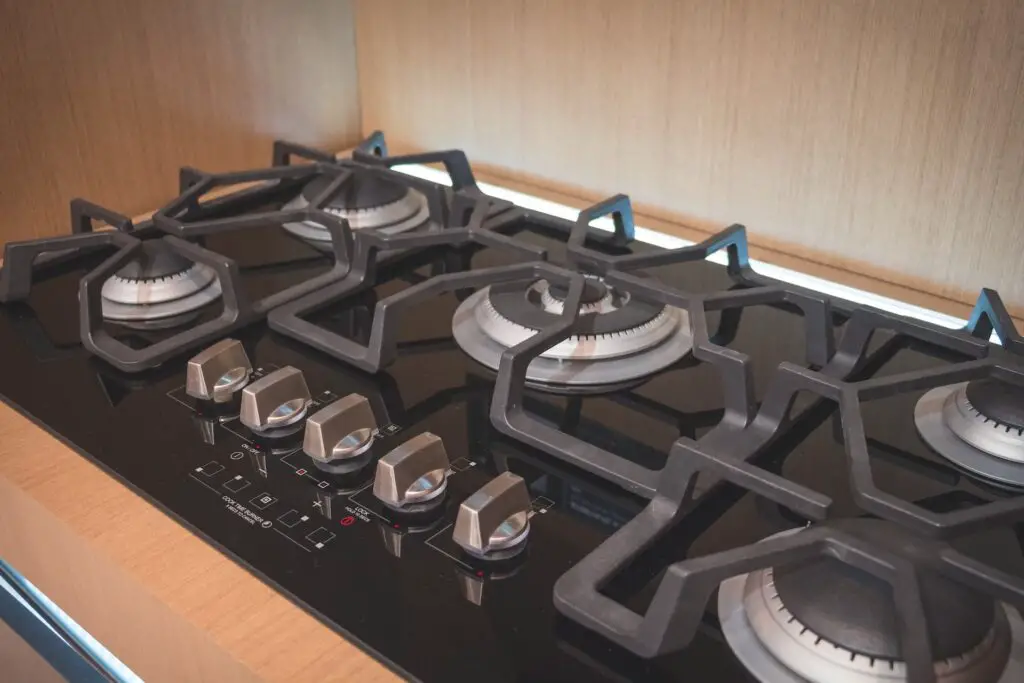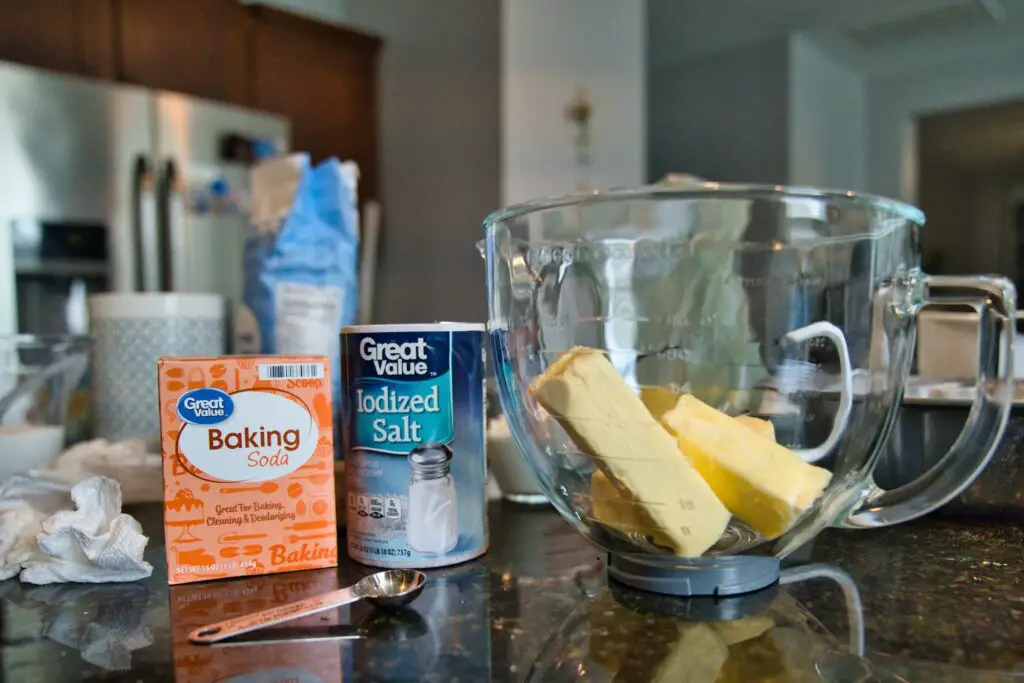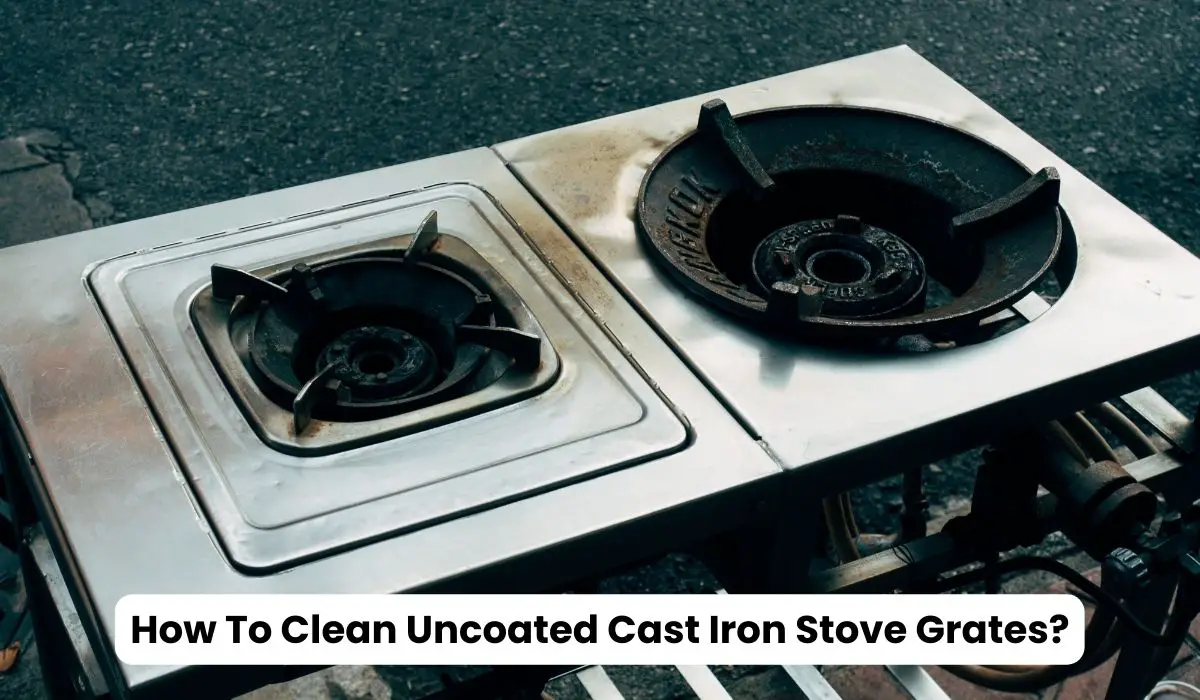Maintaining your kitchen appliances is not only essential for their longevity but also for the health and safety of your family. Cast iron stove grates, while durable and great for cooking, can accumulate grime and gunk over time.
Cleaning them properly is crucial to ensure the best cooking experience and to keep your kitchen looking pristine. In this guide, we’ll walk you through the steps on how to clean uncoated cast iron stove grates effectively.
Cleaning uncoated cast iron stove grates may seem like a daunting task, but with the right approach and some elbow grease, you can keep them looking and functioning at their best.
Cast iron grates are known for their durability and even heat distribution, making them a popular choice among home cooks. However, they can accumulate grease, food residue, and rust over time, affecting their performance.
Table of Contents
How To Clean Uncoated Cast Iron Stove Grates?

Step 1: Gather Your Supplies
Before you begin, it’s essential to have all the necessary supplies on hand. Here’s what you’ll need:
- Rubber Gloves: Cover your hands from chemicals and grime.
- Dish Soap: Opt for mild, grease-cutting dish soap.
- Baking Soda: This versatile household item is excellent for removing tough stains.
- Vinegar: White vinegar works wonders in breaking down grease.
- Plastic Scrubber or Brush: Avoid using abrasive materials that can damage the cast iron.
- Ziplock Bags: Large enough to fit your stove grates.
- Old Towels or Rags: To dry and polish the grates afterward.
Step 2: Safety First
Always start by ensuring your safety. Put on your rubber gloves to protect your hands from any chemicals or grime you’ll encounter during the cleaning process.
Step 3: Remove the Grates
Carefully remove the cast iron stove grates from your stove. If they’re hot, use oven mitts or allow them to cool down before proceeding.
Step 4: Soak in Soapy Water
Fill your sink or a big basin with hot water and add a generous amount of dish soap. Submerge the grates in the soapy water and let them soak for at least 15-20 minutes. This will help loosen the grease and food residue.
Step 5: Scrub with Baking Soda
After soaking, please take one of the grates and spread a liberal amount of baking soda on it. Use a plastic scrubber or brush to scrub away the grime gently. Focus on the areas with the most buildup.
Step 6: Vinegar Solution
Create a cleaning solution by mixing white vinegar and water in equal parts in a spray bottle. Spray this solution on the grates, ensuring all surfaces are covered. To achieve a thorough cleaning, vinegar can effectively dissolve residual grease.
Step 7: Bag It Up
Place each grate in a separate Ziplock bag, and then pour some of the vinegar solution into each bag. Seal the bags tightly, ensuring that the grates are fully immersed in the solution. Leave them to soak for an additional 15-20 minutes.
Step 8: Scrub Again
Remove the grates from the bags and use your plastic scrubber or brush to give them another gentle scrub. You’ll notice that most of the grime should come off effortlessly at this stage.
Step 9: Rinse and Dry
Thoroughly rinse the grates with warm water to remove any remaining soap or vinegar residue. Once they are clean, dry them with old towels or rags to prevent rusting.
Step 10: Season the Grates
To maintain the quality of your cast iron grates, it’s essential to season them after cleaning. Lightly coat the grates with a thin layer of vegetable oil or cast iron conditioner. This will help protect the grates from rust and enhance their non-stick properties.
Step 11: Reassemble and Enjoy
Once the grates are dry and seasoned, reassemble your stove and enjoy cooking on clean and well-maintained cast iron grates.
Cleaning uncoated cast iron stove grates may seem like a daunting task, but with the right supplies and a little patience, you can keep them in top-notch condition. Regular maintenance will not only ensure the longevity of your grates but also improve the taste of your culinary creations.
How To Clean Uncoated Cast Iron Stove Grates:
Common Mistakes to Avoid When Cleaning Uncoated Cast Iron Stove Grates:
Cleaning uncoated cast iron stove grates is like taking care of a precious treasure in your kitchen. These grates are fantastic for cooking, but they need some TLC (tender loving care) to stay in tip-top shape. Whether you’re a seasoned chef or love whipping up a meal at home, knowing how to clean your cast iron stove grates the right way is crucial.
Mistake 1: Using Harsh Cleaners
One of the biggest mistakes people make is using harsh chemical cleaners on their cast iron grates. These chemicals can be tough on the grates, and they might even strip away the seasoning—the protective layer that keeps your grates non-stick. Instead, opt for gentler methods like dish soap and hot water. They work wonders without harming your precious grates.
Mistake 2: Neglecting Regular Cleaning
Imagine not brushing your teeth for weeks—yuck! Well, neglecting regular cleaning for your cast iron grates is a similar mistake. The longer you wait between cleanings, the harder it becomes to remove stuck-on gunk. Make it a habit to clean your grates after each use or at least every few uses to keep them in great shape.
Mistake 3: Using Steel Wool
Steel wool may seem like a good idea for scrubbing away tough stains, but it’s a no-no for cast iron grates. Why? Because it’s too abrasive and can scratch the surface. Instead, use a softer scrubbing pad or make a paste with baking soda and water for those stubborn spots. Your grates will thank you.
Mistake 4: Leaving Grates Wet
Leaving your cast iron grates wet or soaked in water for too long is another common blunder. Moisture can lead to rust, and that’s a problem you don’t want to deal with. After cleaning, make sure to dry your grates thoroughly with towels or paper towels before putting them back on your stove.
Mistake 5: Skipping Seasoning
Seasoning isn’t just for your food; it’s for your cast iron grates too. Skipping this step is a big mistake. Seasoning creates a protective layer that prevents rust and helps maintain the non-stick properties of your grates. After cleaning, use a light layer of cooking oil on the grates and heat them on low for about 20 minutes. It’s like giving them a cozy blanket for protection.
Mistake 6: Using Dishwashers
Dishwashers are handy for cleaning dishes, but there are better choices for cast iron grates. The high heat and moisture in dishwashers can cause rust and damage. Stick to hand cleaning with warm, soapy water and a scrubbing brush—it’s the safer bet.
Mistake 7: Scrubbing Too Hard
When you’re scrubbing away at your grates, remember that a gentle touch is more effective than aggressive scrubbing. Scrubbing too hard can harm the surface and remove the seasoning. Take your time and let your cleaning tools do the work for you.
Mistake 8: Using the Wrong Oils
When it comes to seasoning cast iron grates, it’s important to note that not all oils are suitable. Olive oil and butter should be avoided as they can become sticky and damage the non-stick surface. Instead, it’s recommended to use oils such as vegetable oil, canola oil, or flaxseed oil as they work effectively.
Cleaning uncoated cast iron stove grates doesn’t have to be a daunting task. By avoiding these common mistakes, you can keep your grates in excellent condition for years to come. Remember to be gentle, use the right tools, and don’t forget to give your grates some seasoning love. With a bit of care, your cast iron grates will continue to be your kitchen’s shining stars.
Benefits of Cleaning Uncoated Cast Iron Stove Grates Regularly:

Did you know that cleaning uncoated cast iron stove grates regularly can be super beneficial? It’s essential to understand why keeping your stove grates clean is a good idea. Let’s explore some of the fantastic benefits:
1. Safety First
Keeping your stove grates clean is crucial for safety. When food and grease build up on them, they can catch fire easily. Cleaning them regularly helps prevent accidents and keeps your kitchen safe.
2. Better Cooking
Clean grates mean better cooking. When your grates are free from residue, your food cooks more evenly. That means no more unevenly cooked pancakes or burnt spots on your favorite grilled cheese sandwiches!
3. Durability
Cast iron grates are sturdy, but they can rust if not taken care of. Regular cleaning helps prevent rust, making your grates last longer. That means you won’t need to replace them as often, saving your family money.
4. Tastier Food
When your stove grates are clean, they won’t transfer weird flavors to your food. So, your spaghetti will taste different from last night’s grilled burgers!
5. Easy Cleaning
The more often you clean your grates, the easier it becomes. If you let the gunk build up, it can be super hard to remove. But if you clean them regularly, a quick wipe-down is usually all it takes.
6. Healthier Cooking
Cleaning your grates helps get rid of old grease and food bits. This makes your meals healthier because you won’t be cooking on top of old, burnt stuff that can release unhealthy fumes.
7. Prettier Kitchen
A clean stove with shiny grates makes your kitchen look more excellent. It’s more enjoyable to cook in a clean and beautiful kitchen.
Can You Use Baking Soda on Uncoated Cast Iron Stove Grates?

You can use baking soda to clean your stove grates by making a paste. Just mix some baking soda with water until it’s like a thick, gooey sauce. Then, spread that paste all over your grates. It’s like giving them a baking soda spa day.
Leave the baking soda paste on the grates for a little while, 15-30 minutes. During this time, it works its magic to loosen up all the gunk and grease.
After that, you can use a scrub brush or a sponge to scrub away all the dirt gently. It’s like cleaning a dirty dish, but it’s more significant.
Finally, rinse off the baking soda paste with water and dry the grates thoroughly. You’ll be left with clean and shiny stove grates ready for your next cooking adventure.
So, yes you can definitely use baking soda on your uncoated cast iron stove grates. It’s an easy and safe way to keep them looking great and cooking your favorite meals like a champ.
Conclusion:
At the end of this article, you’ve learned all the secrets to keeping your uncoated cast iron stove grates spick and span. It’s as easy as making your favorite sandwich. Regularly cleaning these grates isn’t just a chore; it’s a way to make your cooking better, your kitchen safer, and your meals tastier.
Remember, start by letting your grates cool down, then remove them carefully. Scrub off the gunk with a brush or sponge using soapy water or even a baking soda paste. Rinse, dry, and put them back, and you’re all set for your next culinary adventure.
Cleaning your stove grates regularly means they’ll last longer and look nicer. Plus, your food won’t stick or taste strange from old grease buildup. So, make cleaning your stove grates a routine, and you’ll be the kitchen hero in no time. Happy cooking.
FAQs
Can I use abrasive materials to clean cast iron stove grates?
No, it’s best to avoid abrasive materials as they can scratch the surface of the grates. Stick to soft-bristle brushes or sponges.
How often should I clean my stove grates?
Ideally, you should clean your stove grates after every use to prevent the buildup of grease and food residue.
Can I use a dishwasher to clean cast iron grates?
No, dishwashers can damage cast iron grates. Hand washing with warm, soapy water is the recommended method.
Can I season my grates after cleaning?
Yes, it’s a good idea to season your cast iron grates after cleaning to maintain their non-stick properties. Apply a thin layer of vegetable oil and heat the grates for about an hour at 350°F (175°C).



